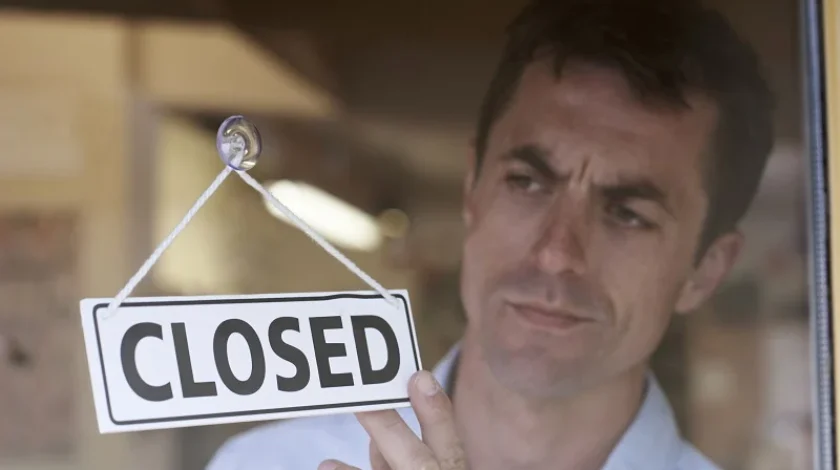Assisted by Jason Vo
How many times have you been owed money by a corporate customer which closes its doors one day only to ‘rise’ up the next as a new but similar entity, running what appears to be the same business? It begs the question, ‘is this illegal phoenix activity’?
What is illegal phoenix activity?
While not a defined term, the characteristics of illegal phoenix activity is the deliberate stripping and transferring of assets from a financially distressed or insolvent company to another entity to evade repaying liabilities to creditors. Those creditors often encompass suppliers, employees and the Australian Taxation Office (ATO).
A 2018 report commissioned by the Phoenix Taskforce estimated the cost of illegal phoenix activity to the economy to be around $2.85-$5.13 billion annually.
Action Aimed at Combatting Illegal Phoenix Activity
The Australian Government has pursued reforms to corporations and taxation laws in order to curb illegal phoenix activity and reduce the obvious impact on the economy.
Key Reforms
On 5 February 2020, the Treasury Laws Amendment (Combating Illegal Phoenixing) Bill 2019 (the ‘Bill’) was finally passed by both Houses of Parliament. The Bill (awaiting Royal assent) introduces mechanisms to discourage illegal Phoenix activity and punish those facilitating such activity.
- A Creditor-Defeating Disposition:
A new section 588FDB will be inserted into the Corporations Act 2001 which introduces the concept of a “creditor-defeating disposition” as it relates to property of a company. Such a disposition of property would be one in which the purchase price is less than:
- “the market value of the property”; or,
- “the best price that was reasonably obtainable for the property, having regard to the circumstances existing at that time”.
For the disposition to be a “creditor-defeating”, it must also have the effect of preventing, hindering, or significantly delaying the process of making that property available for the benefit of a company’s creditors in a winding-up.
- Voidable Transaction
The Corporations Act 2001 will be amended to make creditor-defeating disposition transactions voidable if it was made when:
- the company was insolvent during the 12 months before the wind up is deemed to commence or after that date to the day before it commences; or,
- if the company became insolvent as a result of the disposition during that period; or,
- if less than 12 months after the transaction occurs, external administration of the company takes place as a direct or indirect result of the transaction.
An exception to all of the above, is if the transaction was not done as part of an arrangement sanctioned by the Court, under Company Administration or liquidation.
- Expansion of ASIC’s powers
The Bill expands ASIC’s power to undo the effect of creditor-defeating dispositions. ASIC may on request of the company’s liquidator, or on its own initiative, make an order:
- directing a person to transfer back to the company, property that was the subject of the disposition;
- requiring a person to pay the company, in its opinion, an amount fairly representing some or all of the benefits that the person has received because of the disposition; and/or,
- requiring a person to transfer to the company property that, in its opinion, fairly represents the proceeds of the disposition of the property.
- Director’s duty to prevent insolvent trading and creditor-defeating dispositions
The Bill expands the existing duties to prevent insolvent trading which currently applies to directors. The proposed amendment to the Corporations Act 2001 will encompass a duty directed to ‘officers’ of the company to prevent creditor-defeating dispositions. Officers will be prohibited from engaging in the conduct of ‘procuring, inciting, inducing or encouraging’ the company to make a creditor-defeating disposition and conduct that would result in such a disposition. Stringent civil and criminal penalties will apply.
- Stricter regulation of director resignations
To prevent backdating of director resignations of those seeking to avoid liability, the resignation of a director will be void if it will leave a company without one director.
- Personal liability for unpaid GST
Directors will become personally liable for their company’s unpaid GST liabilities and this will become within the ambit of the Director Penalty Notice (‘DPN’) regime. The obligation on directors will be to ensure that the company either pays outstanding GST amounts or otherwise promptly enter the company into administration or liquidation.
Key takeaways
- Directors facilitating any company restructuring activities must consider the effect, nature and timing of transactions in the context of the definition of creditor-defeating dispositions;
- It will become much more difficult for directors to “backdate” their resignations with the purpose of obscuring their role in illegal phoenix activity;
- Directors should consider the risks in deferring or not regularly reviewing reporting and payment of unpaid GST amounts; and,
- Incoming directors should consider their potential personal liabilities for GST.
If you have any questions in relation to your duties as a director or require advice on insolvency, please contact a member of Coleman Greig’s Commercial Advice team who would be more than happy to assist you.
Disclaimer This information is for information purposes only and is not legal advice. You should obtain advice that is specific to your circumstances and not rely on this publication as legal advice. Please contact us if you wish for us to advise you on any issue you may have in your particular circumstances.














